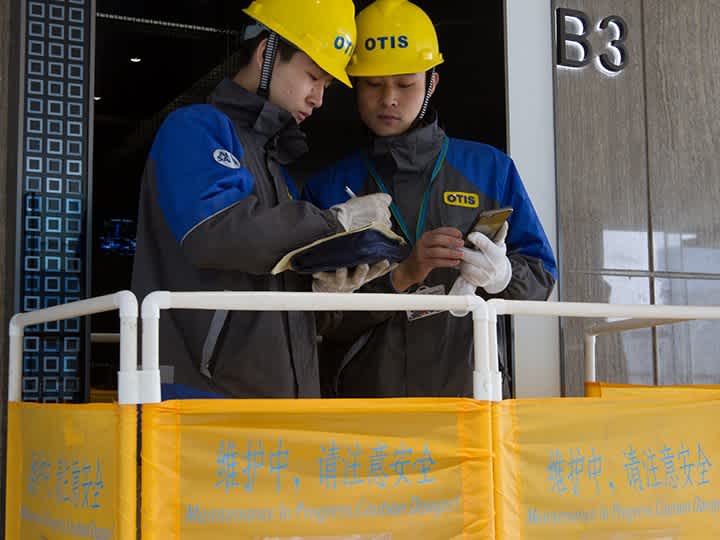Singapore MRT | Otis Global Projects
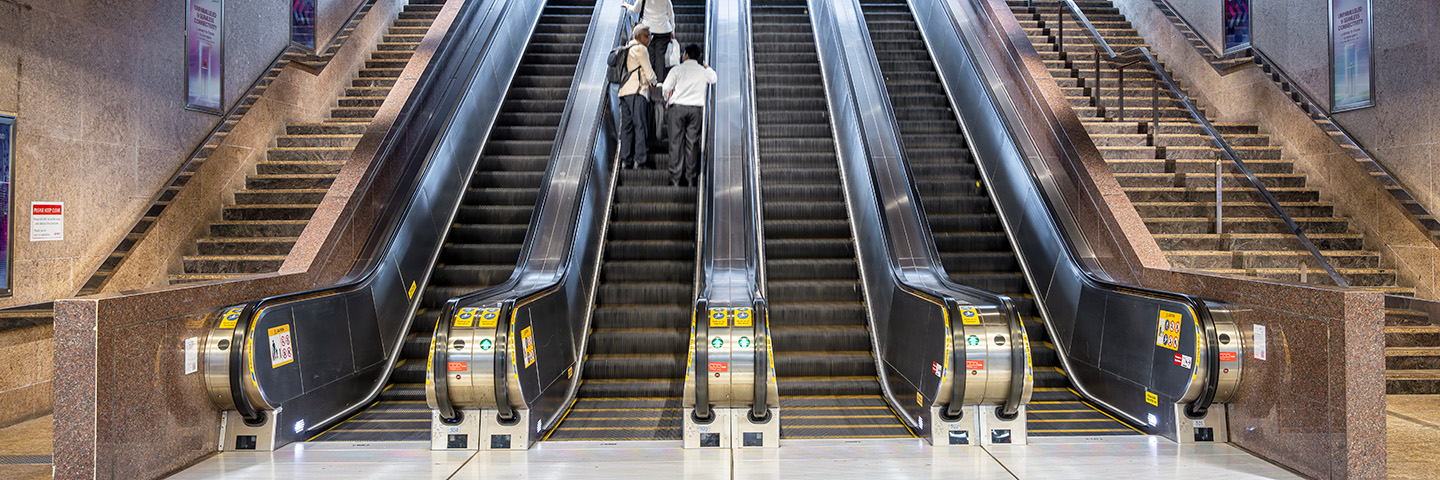
Mass Rapid Transit (MRT) Network
Singapore
Discover how Otis helped drive a large-scale escalator modernization project in Singapore’s first Mass Rapid Transit (MRT) system, North-South and East-West Lines
As two of the oldest and busiest Mass Rapid Transit (MRT) rail lines in Singapore, the North-South and East-West Lines have been serving the country’s commuters for more than three decades. To support an ever-increasing passenger volume, Otis embarked on a six-year project to upgrade, refurbish and modernize the line’s extensive escalator system and renew its design life by another 30 years.
Project Facts
Unique requirements
Otis was selected by SMRT Trains and the Land Transport Authority to refurbish and modernize 231 escalators that were installed by Otis in 1987. This had to be done while keeping the busy metro stations operational. The Otis teams needed to work efficiently, minimize disruptions, and ensure the work and transportation of materials was done in a safe manner.
Otis innovation
Otis refurbished the existing escalator systems on the North-South and East-West Lines by replacing all components subject to fatigue, wear or obsolescence. The modernized escalators comply with the latest international safety standards, while improving reliability:
Use of eddy current inspections and ultrasonic examinations to check for any defects and corrosion of the escalator trusses
Introduced dual rated speed functionality, a safety feature to adjust escalator speed based on peak and non-peak periods of traffic
Installed new controllers with radar sensors – during quiet periods when no passengers are detected, the escalator will conserve energy by slowing down
Provided new control panel with a Fault Diagnostic System, to improve service reliability
Installed new gear machines, with higher torque for heavy-traffic applications
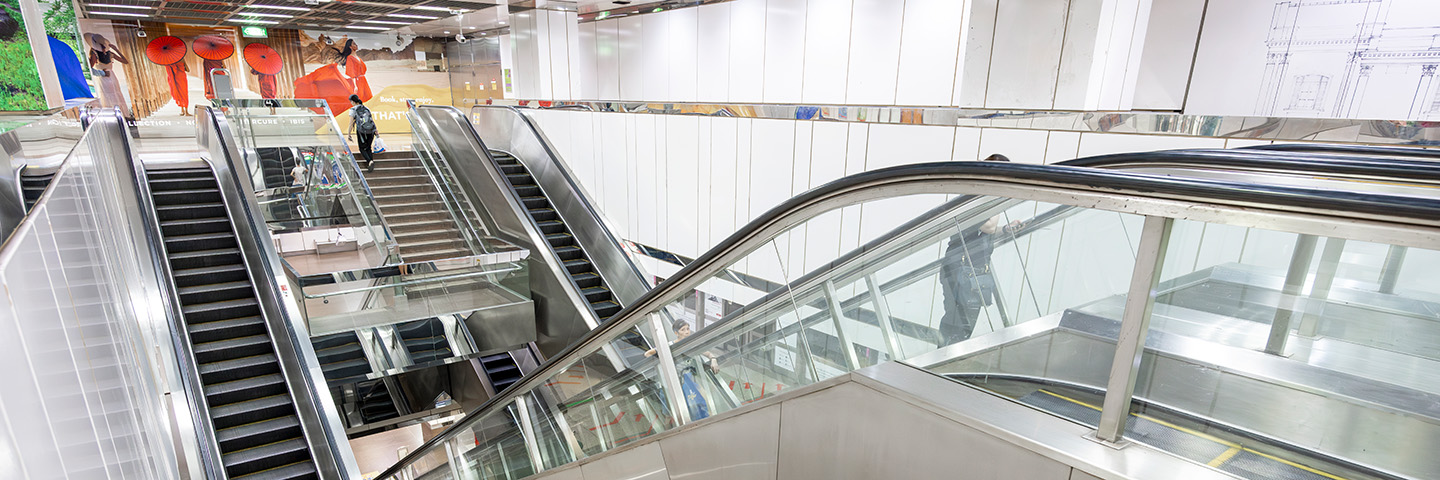
Upgrading and modernizing proven solutions on a world-renowned rail system
SMRT: Moving into the future at full speed
Since commencing operations in 1987 with only five stations, the MRT network in Singapore has undergone a rapid expansion. Today, with 140 stations, it spans the entirety of the country.
As the backbone of Singapore’s public transport system, there has been a continuous effort to expand and modernize the network. Since 2012, SMRT Trains has completed several comprehensive upgrade programs to ensure safety and reliability across the lines. Through investments in new technologies and an ongoing commitment to innovation and safety, the network has quickly become a model for efficient and progressive urban transportation.
Making public safety a number one priority
In the first major escalator refurbishment project since the North-South and East-West Lines began operation in 1987, Otis was entrusted with upgrading and modernizing 231 escalators across 42 stations. The main goal of the project was to ensure these escalators would continue providing service 20 hours a day at a 99.9% availability level for decades to come.
Because the stations needed to remain operational throughout the project, maintaining safety and minimizing disruptions to commuters was of the utmost importance. This would require adjustments to our work processes and a constant effort to communicate progress statuses to the network’s passengers.
Solution
Before beginning work on each escalator, we collaborated closely with the customer to develop a plan that accounted for a range of factors, including location of escalators, passenger volume and routes potentially impacted, if any additional scope of work required and lead time.
Once the plans were finalized, we began the refurbishment process by replacing all escalator components subject to fatigue, wear or obsolescence. Static parts, such as trusses and balustrades, were retained and cleaned. Teams also conducted eddy current inspections and ultrasonic examinations – methods used to check for flaws and corrosion – to ensure the integrity of each truss and to confirm they could last another 30 years.
Higher-torque gear machines, an automatic lubrication system and new controllers were installed on all escalators to optimize energy usage and improve capabilities. Each controller now includes a Multifunction Escalator Safety Device with passenger radar sensors to enable speed reduction – and indirectly uses less energy – when not in use by passengers. The escalators are also able to move at different speeds during peak and nonpeak hours. New control panels were also added along with fault detection systems to enable more accurate troubleshooting.
To minimize disruptions, teams typically worked on one escalator at a time in each station throughout the project. Any escalator shutdowns were carefully coordinated to minimize inconvenience to passengers. Just-in-time parts deliveries were established to minimize space requirements. The temporary barriers placed around the work area were also used to provide the public with up-to-date details on what work was being performed, estimated completion date and contact information.
After six years of work, the North-South and East-West Line modernization project was successfully completed in 2022. At every stage, we worked closely with the customer to meet their goals and deliver a safe, efficient and impactful modernization. In addition to being an important part of the transit network’s overall modernization efforts, the project was recognized as an Elevator World Project of the Year for 2024.
Featured solutions
Relevant projects
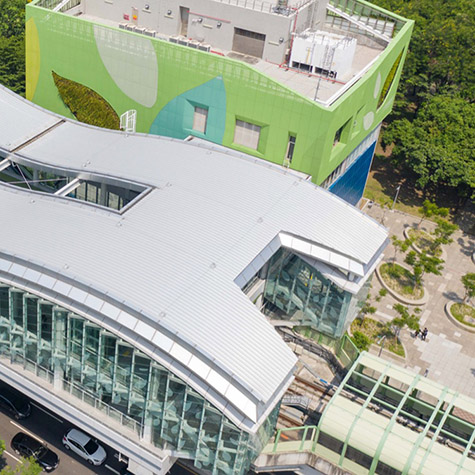
Taichung Mass Rapid Transit
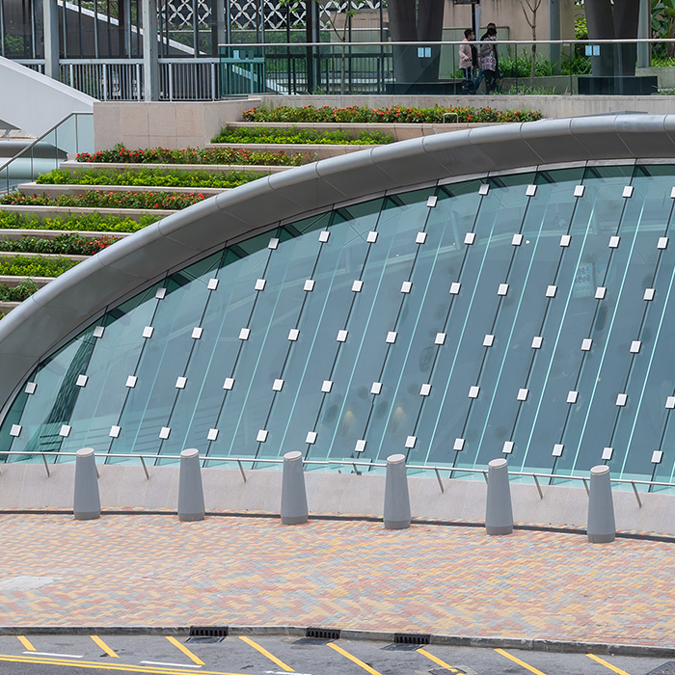
East Rail Line Cross-Harbour Extension
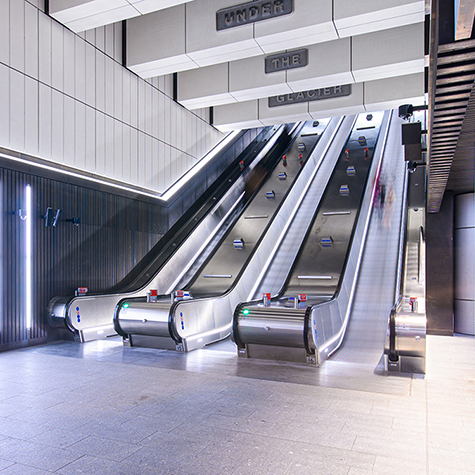
Elizabeth Line
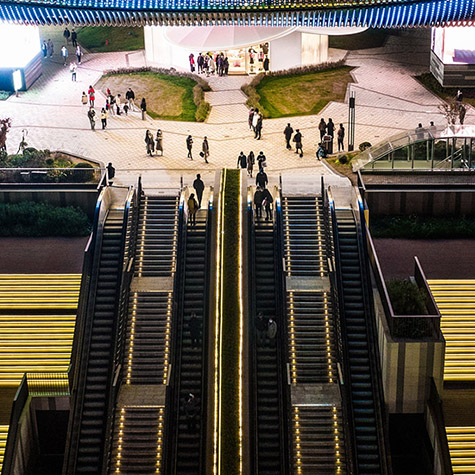
New Bund Center


